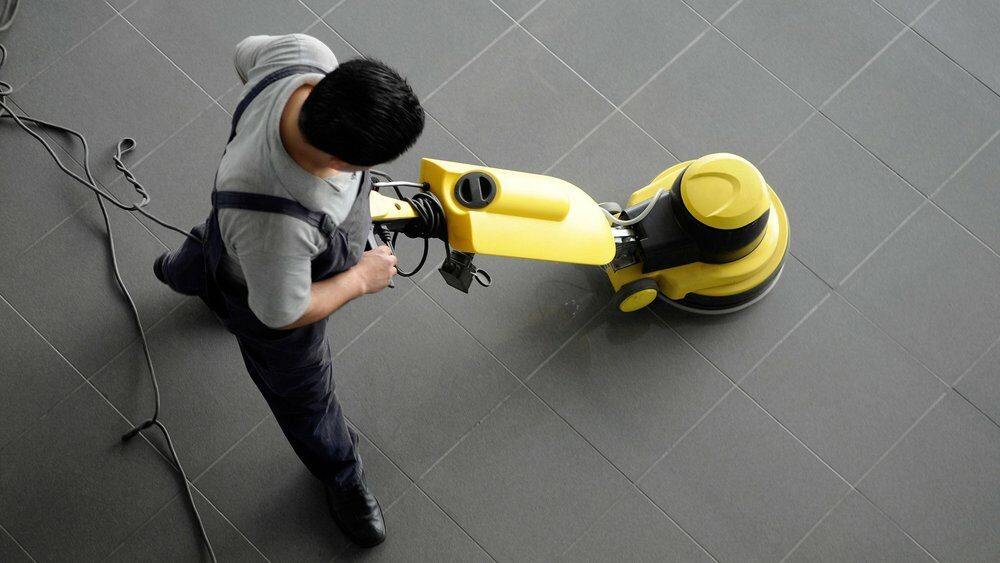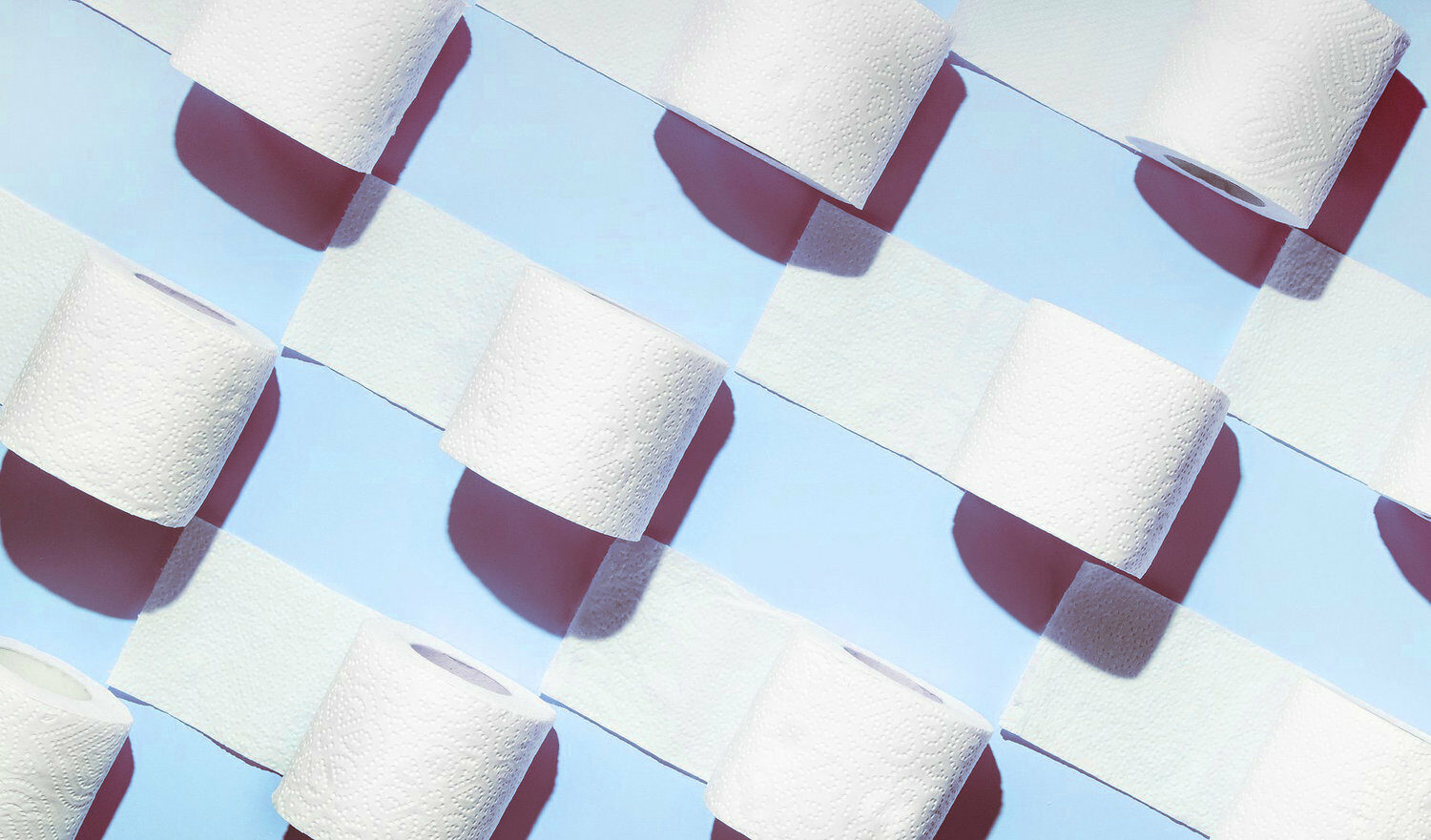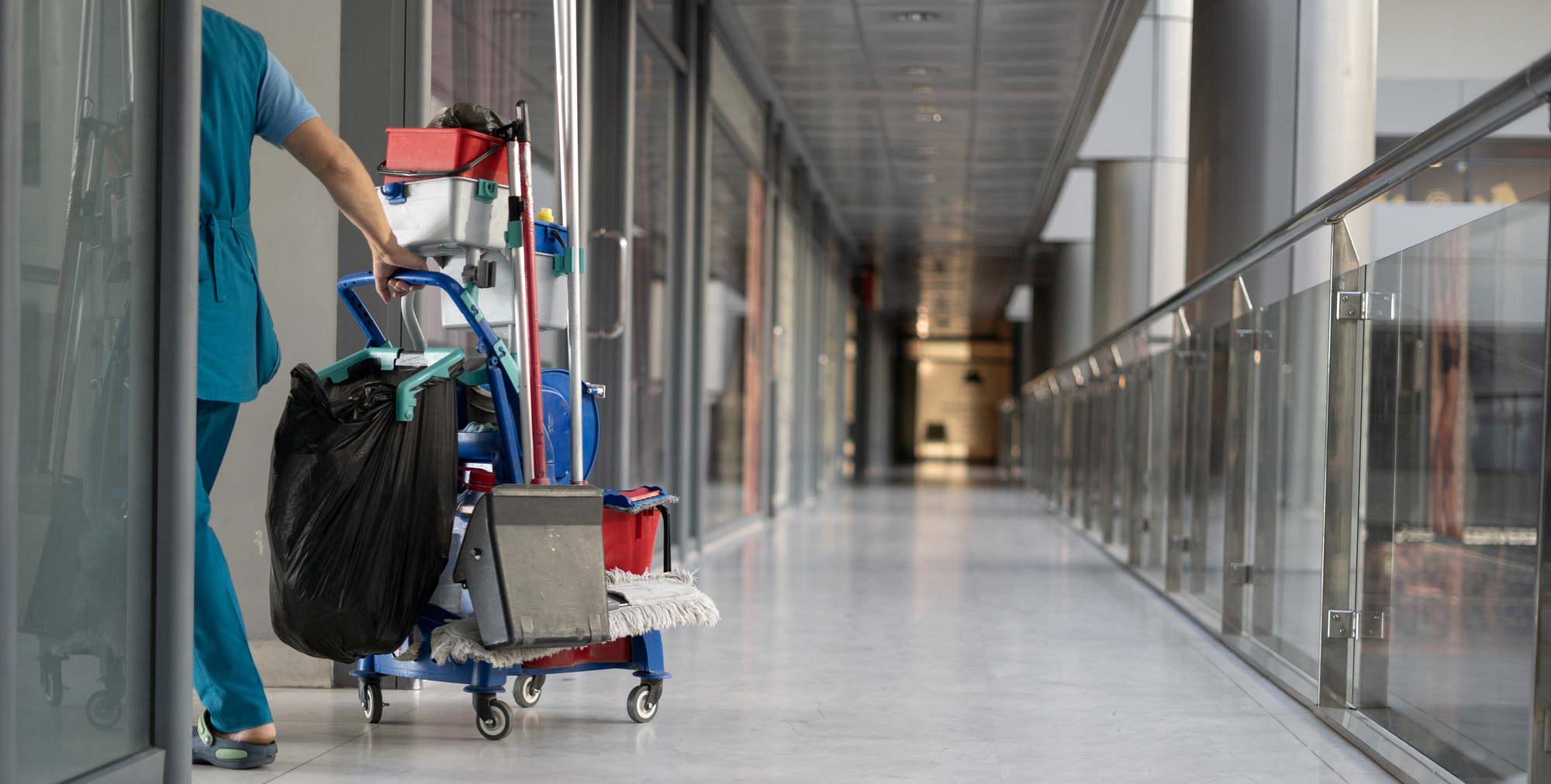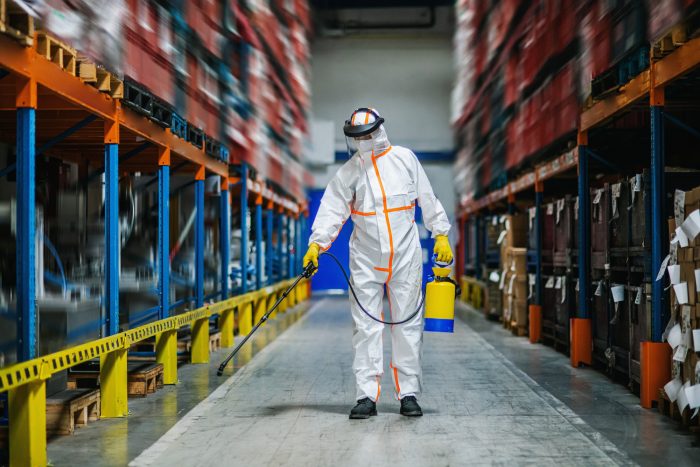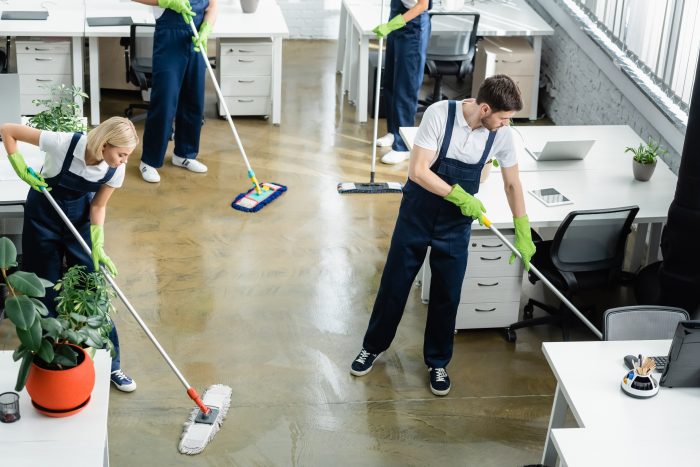In the commercial business environment, most areas look clean until you move something that isn’t moved too often. That’s when you notice the dirt, dust or grime that hides from your regular cleaning regime. This is when you probably need what’s called ‘deep cleaning’, whether yours is an office, a factory, a restaurant kitchen or a commercial food production plant.
So how does this deep cleaning differ from regular cleaning? To gain context, let’s examine the difference between the two.
What is regular cleaning?
Although every business has a unique cleaning requirement, in simplistic terms ‘regular cleaning’ is a once-over done to a professional standard on all frequently seen and used surfaces. For instance, some of the following are pretty much stock standard in a regular clean:
Vacuuming
A quick way of eliminating dust and dirt build-up, but the standard vacuuming is almost always limited to skirting around most furniture and hardware.
Wiping surfaces
Regular office cleaning in Sydney ensures a fast and comprehensive wiping and sanitising of all regularly used, exposed surfaces such as desks, countertops, benches etc. It often does not involve hard-to-access areas.
Emptying bins
This speaks for itself. Regular cleaning will see your bins emptied but the budget wouldn’t normally include cleaning the actual bin itself.
Cleaning bathrooms
Toilets are given a decent clean inside on the bowl as well as on the outside. Urinals are given a suitable scrub and disinfecting, bathroom sinks receive a quick wipe, walls and floors are wiped and/or mopped and mirrors are wiped clean. All general surfaces can expect to be disinfected in a regular clean.
Restocking bathroom supplies
A regular cleaning contract is also most likely to include the duty of restocking basic supplies such as toilet paper, soaps and hand creams etc.
What is deep cleaning?
Again, let’s use a simple definition: Deep cleaning involves regular cleaning services but adds specialised, often detailed, additional cleaning services to the mix.
For example, a deep clean of bathroom facilities achieves much more than the regular clean: toilets and urinals are given a thorough, close clean inside and out and include the removal of watermarks and spots entirely. Countertops and sinks are extensively scrubbed, wiped and disinfected. Mirrors, taps, handles and latches are wiped and polished. Also in a deep clean, vents would be cleaned and where there is carpet, this would be vacuumed (and also steam cleaned if required).
While regular commercial cleaning in Sydney is normally done every week or so, deep cleaning is something you can engage in once, twice or thrice a year for optimum results. Again, the frequency will depend on the industry. As an example, commercial kitchens require frequent deeper cleans to get to areas such as inside ovens, above range hoods etc to maintain the high levels of hygiene demanded by the standards of the industry.
Deep cleans are very extensive, take more time, and clean out all the hard-to-reach corners, tops of cabinets, walls behind furniture and catering equipment to clean and sanitise so there is no free ride for germs and other harmful elements not normally seen by the naked eye.
These elements include allergens, dust particles, mould etc which love spaces such as office curtains, carpets, microwaves, backs of kitchen equipment, furniture – and the list goes on.
What is involved in a deep clean?
Deep cleaning can involve a long list of activities. The more commonly engaged include:
Thorough dusting of hard-to-reach spaces
Narrow spaces, especially if they are close to appliances or IT equipment which can create a static effect, often have dust accumulation, but most business owners would be unaware of this as it is mostly discovered accidentally when a piece of equipment is moved from its regular position. A thorough dusting and cleaning of these hard-to-reach places behind and around appliances and fixtures is an important role played by deep cleaning as it removes dust that is overlooked by regular cleaning.
Cleaning walls
How often have you moved a cabinet, kitchen appliance or storage unit and found what looks like a shadow of dust or grime (or both) on the wall behind in the shape of this unit? A deep clean involves moving items that are normally fixed in position to access the walls behind or around them for a proper clean. Such deposits aren’t just dusty areas; they could be harbouring nasty bacteria or allergens if they mix with oily grime.
Window cleaning
Standard window cleaning doesn’t really go beyond a basic wipe of the internal glass pane. A deep window clean is very different. Proper dusting and wiping extends to internal frames and tracks. Tracks, in particular, are perfect zones for dust accumulation and if not kept clean can cause dust to affect a bearing or slider system and obstruct fluent window movement. Ledges are also given a proper clean.
Bin cleaning
Your bins are emptied regularly, but how often are they cleaned? Deep cleaning services use industrial-grade detergents, scrubbers and when required, pressurised water cleaners to wash and clean inside and out. This is of particular benefit to industries such as food and catering, and larger office operations and manufacturers that use skip-like bins which see a lot of action but only infrequently receive a regular clean (if ever at all). Clean bins not only enhance workplace cleanliness and abide by WH&S guidelines, but they also look far more presentable in the eyes of your clients and the general public.
Cleaning grout
It’s impractical to clean grout lines every time the floor is mopped or the wall is wiped, so these begin to look dirty after a short period of time. A deep cleaner uses specialised solutions and equipment to clean grout between tiles on floors and walls in walkways, kitchens, bathrooms and other high-use areas.
When do you need deep cleaning?
For most businesses, a deep clean is recommended every four to six months. But some industries, such as the hospitality sector, food and beverage production and any associated type of business that produces a lot of steam and grime and runs under very strict health and hygiene laws are likely to be in need of a deep clean more frequently.
When evacuating a premises, especially at the end of lease or sale of property, a deep clean will provide a spotless asset at handover. Most Sydney strata cleaning contracts contain a clause requiring this.
Summary
Deep cleaning should be viewed as a business asset. Intuitive business owners maintain their machines and equipment so they don’t break down and become a bigger problem further down the track. Deep cleaning, a commercial cleaning cost, should be viewed from a similar perspective. If you engage a deep cleaning specialist at ideal intervals, your business and operations should look nice and clean and staff will benefit from a healthier and safer environment.


